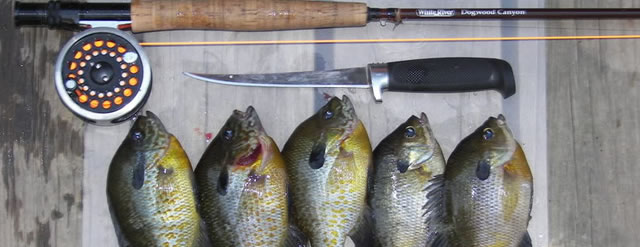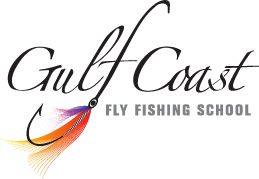Fly Fishing Exotic Locations is FUN!
Exotic By Thomas R. Dempsey, M.D. CCI

Fishing exotic locations is just plain fun, but there are aspects that require preplanning in order to avoid disasters. Doing a little research can enhance your experience and prepare you for any potential problems.
Make a Budget
When you decide where you are going, set a budget and get all the up front cost from the outfitter. Be specific,many lodges charge big bucks for liquor and bottled water and some even have a surcharge for gas. Fly in and fly out might be advertised but you may be charged per trip. This can climb into the hundreds of dollars. A good friend of mine was told when they landed for their trip on the rivers of the Kamchatka that they would have to pony up $800 dollars each to feed the big orange MI-8 helicopter fuel. Fishing in front of the lodge might be your only option unless you fly. Believe it or not there are lodges that do not allow their clients to fish on the property without a guide. On a trip to Mexico we were told not to fish in the waters in front of the lodge because drugs often floated up on land and were collected by the local cartels.
Accomodations
Check out the accommodations before hand. Air conditioning can range from open windows to full fledged USA style. In some locales the air conditioning only works when the onsite generator is cranking. On my first trip to the Amazon we were given a car battery and a fan, welcome to Amazonian air conditioning.
Food
A hamburger outside of the US is a culinary snare trap. You are better off eating what the locals eat. One of the clients on our trip to the Paraná River in Argentina insisted on following a strict vegetarian diet of fresh unwashed greens and veggies. Six days later she is still trying to identify the alien in her gastrointestinal track. Prophylactic Cipro could have salvaged her trip. Pack a jar of peanut butter. The soul food of the international angler.
Medical Needs
We complain about our healthcare system in the US, but believe me it is comforting to know there’s an emergency room or a drug store close by. Being a physician and an angler I try to anticipate any potential emergencies when I fish outside of the US border. Beside taking your personal prescriptions, throw in something for pain,sleep, diarrhea, indigestion, in addition to a little Benadryl for the critter bites. Mild analgesic cremes and antiseptics are hard to come by in the jungle. Band-aids and steri-strips can close a wound until you get back home. If you can tie a blood knot, you can learn to inject xylocaine and extract a hook or sew up a laceration. FYI: We offer a crash course in suturing to our fly club members.
I had the opportunity to experience the Canadian socialized medical care system up close and personal when I suffered an open fracture to my little finger when I slipped on the rip-rap on the Cascapedia River. A trip to the E.R. got me back on the river. Although the care was adequate, they deal in cash only for their southern neighbors. Many international anglers are older who now have put enough back in the travel piggy bank to allow them to take the “bucket trip of a life time”. With age comes health concerns. But you would be surprised on how few fishermen never consider medical evacuation insurance. You pay $6,000 dollars to go catch Golden Dorado in Santa Fe Argentina, but “save” money by skimping and waving off the Medivac or the Global Rescue that can get you back to a US hospital.
Real bad things do actually happen to fly fishermen. We had a trip to the Agua Boa punctuated with an explosion of the aviation fuel depot and resulting in no fewer than 10 burned people being air-lifted to Manuas. The next year one of the clients down river lost his arm in a schoolboy prank of “let’s see which boat can catch the biggest caiman”. Not to mention the physician who was fishing with his son and an on-site guide when he developed a life threatening case of intestinal obstruction. We were lucky to have some I.V. fluids available, and I had some morphine, the only piece of equipment missing was a nasogastric tube to decompress his swollen stomach. That was solved when one of the Brazilian guides presented us with a plastic gas line. It saved his life until he was flown back to Atlanta.
Gear to Pack
Gear to go should be a minimal amount but adequate. Let your clothes serve a dual purpose. Leather shoes never dry out in a tropical region,wear synthetics with no-scuff bottoms. Quick dry pants are great and cotton is always cooler than anything manmade. Now all you need is a Buff, a hat, and 2 and I mean 2 pair of polarized sunglasses. In the colder climates, layer. Your waders keep you dry and warm. Don’t fudge on quality. Buy the best foul weather gear on the market, you’ll never be sorry. It is nice to have those extra rods and reels in your luggage provided your luggage arrives when you do. When you fly on an airline such as Lloyd Areo Bolivia that has only one 737 in operation you had better carry on a rod, reel, flies and anything else you can cram in your backpack in case your gear doesn’t arrive. There are baggage handlers and airport workers that know very well what an Abel reel is worth. If you can’t afford to lose it, don’t take it.
$Manners
Tipping your guide always brings up a discussion behind the potted plant just as you are about to depart. Always ask before the eleventh hour what the usual tip comes to. Sometimes it is included in the package, great. An all inclusive tip in one lump sum is better than having to tip each person in the camp. I like to tip a little extra on the front end. It is doubtful that we would have seen some of the special “honey holes” if we had not greased our Bahamian guide’s palm with a few shekels on the morning we pulled away from the dock. Consider packing things like an extra pair of sunglasses, a Michael Jordan tee shirt, a spinning reel, Marlboro Reds, some cosmetics for the house maid who makes you bed, think what you like and the chances are they will like it also. We pack a suitcase with goodies for the camp personnel evey time we travel. On one trip my partner sharpened all the cook’s knives, man, we got anything we wanted from the kitchen after that. Leave the guides whatever you can spare, they will remember you the next time you show up. Let’s not forget about cash, I mean folding money. U.S. currency the universal ticket to a smoother trip abroad. A $20 dollar bill in your passport will go a long way in getting you that window seat on the plane for the long ride back home.
Mementos
Always bring back something you can look at while you are sitting around in a coma planning your next trip. My buddy still uses the paddle to propel his Riverhawk on the Caney Fork River that Pablo made for him for the lofty sum of $5 dollars. Those shellacked piranha for .50 cents make great gifts. I traded my B.C. guide a UNC basketball cap for a hand-carved cane. Don’t travel without a digital camera. I take one small point-and-shoot waterproof [got some great under water shoots of piranha eating cheese out of my hand, really] and I take my bigger camera for the proverbial grip and grin photos. Film was cheap but digital is cheaper, and provides instant gratification. You are always sorry for the trinkets you didn’t buy and the pictures you didn’t take.
Finally, there are some universal truths that traverse all national and international boundaries:
1. If anything bad is going to happen the chances are it will happen on the water. Never was this any truer than during our trip across Lake Illiama in Alaska the wind lifted the aluminum jon boat like a kite and dumped 3 of us in the frigid water. Wear a life jacket then at least they can recover your body.
2. ” When in Rome………” Yep, be nice to the locals and especially to anyone wearing a uniform,a badge, or packing an AK -47. I witnessed a bunch of “bubbas” from lower Mississippi lose all their take home goodies and the better part of their personal fishing gear and clothes after back-talking the security guys in the airport in Caracas. And when the guy in shorts and a t-shirt insists you pay a deplaning tax while you wait in the airport for the plane to be refueled, just do it. You are in his backyard.
3. Assume nothing. Always allow some wiggle room on the front end and the end of your trip. When I planned my trip to Newfoundland, Lee Wulff’s Brook Trout Haven, I was told to allow 2 to 3 days travel time on side of the trip to allow for foul weather. The 9 p.m. scheduled flight out of Miami Int. to Manaus never ever left before midnight. Tape a thin roll-up sleeping bag pad to your back pack so you can curl up on the floor in the airport and grab some zzzz’s while you wait for the flight crew to roll in. My Delta agent upon hearing my travel delays reminded me to think before I bad-mouthed the US airline system next time.
4. You can never be over prepared. The next best thing short of first hand experience is to talk with someone who has made the trip before. The Angling Report is a great resource that is unbiased offering you a look at numerous fishing locations covering the good, the bad, and the ugly.
So,now you are ready to experience that once in a life time trip that will brand you as an international angler. Heck, you might get your picture on the front of Fly Fishing in Saltwater or American Angler. Oh, one more thing, don’t forget trip insurance.
Have fun.
